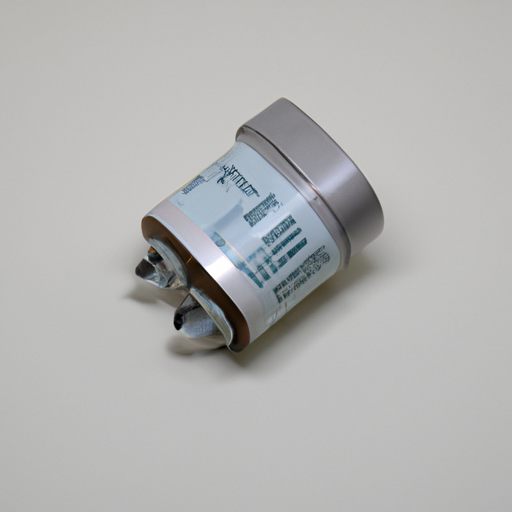What are the product standards for washing machine capacitors?
What are the Product Standards for Washing Machine Capacitors?
I. Introduction
Washing machines are essential appliances in modern households, providing convenience and efficiency in laundry care. At the heart of these machines lies a critical component: the capacitor. Capacitors play a vital role in the operation of washing machines, ensuring that motors start and run smoothly. Given their importance, understanding the product standards governing washing machine capacitors is crucial for manufacturers, consumers, and regulatory bodies alike. This blog post will explore the various product standards for washing machine capacitors, their significance, and the implications for safety, performance, and environmental sustainability.
II. Understanding Capacitors
A. Basic Principles of Capacitors
Capacitors are electrical components that store and release electrical energy. They consist of two conductive plates separated by an insulating material, known as a dielectric. When voltage is applied, an electric field forms between the plates, allowing the capacitor to store energy. In washing machines, capacitors are primarily used to manage electrical currents in motors, ensuring efficient operation.
B. Role of Capacitors in Washing Machines
In washing machines, capacitors serve two main functions:
1. **Motor Start and Run Capacitors**: These capacitors provide the necessary boost of energy to start the motor and maintain its operation during the wash cycle. Start capacitors are typically used for a short duration, while run capacitors remain in the circuit for the entire operation.
2. **Power Factor Correction**: Capacitors help improve the power factor of the washing machine, which is a measure of how effectively electrical power is being converted into useful work output. A better power factor leads to increased efficiency and reduced energy consumption.
III. Regulatory Bodies and Standards
A. Overview of Key Regulatory Bodies
Several organizations are responsible for establishing and enforcing product standards for electrical components, including washing machine capacitors. Key regulatory bodies include:
1. **International Electrotechnical Commission (IEC)**: The IEC develops international standards for electrical and electronic devices, ensuring safety and performance across borders.
2. **Underwriters Laboratories (UL)**: UL is a global safety certification organization that tests and certifies products for safety and performance, providing assurance to consumers and manufacturers.
3. **American National Standards Institute (ANSI)**: ANSI oversees the development of voluntary consensus standards for products, services, and systems in the United States.
4. **European Committee for Electrotechnical Standardization (CENELEC)**: CENELEC develops European standards for electrical products, promoting safety and interoperability within the European market.
B. Importance of Compliance with Standards
Compliance with established standards is essential for several reasons:
1. **Safety**: Adhering to safety standards minimizes the risk of electrical hazards, such as short circuits, fires, and electric shocks.
2. **Performance**: Standards ensure that capacitors perform reliably under specified conditions, contributing to the overall efficiency of washing machines.
3. **Environmental Considerations**: Compliance with environmental standards helps reduce the ecological impact of manufacturing and disposing of electrical components.
IV. Key Product Standards for Washing Machine Capacitors
A. Electrical Performance Standards
Washing machine capacitors must meet specific electrical performance standards, including:
1. **Voltage Ratings**: Capacitors are rated for specific voltage levels, which indicate the maximum voltage they can handle without failure. It is crucial for manufacturers to select capacitors with appropriate voltage ratings to prevent breakdown during operation.
2. **Capacitance Values**: The capacitance value, measured in microfarads (µF), determines the amount of electrical charge a capacitor can store. Different washing machines may require different capacitance values based on their motor specifications.
3. **Tolerance Levels**: Tolerance levels indicate the acceptable range of deviation from the specified capacitance value. This ensures that capacitors can function effectively even with slight variations in manufacturing.
B. Safety Standards
Safety standards for washing machine capacitors include:
1. **Insulation Resistance**: This measures the ability of the capacitor's insulation to resist electrical leakage. High insulation resistance is essential to prevent short circuits and electrical shocks.
2. **Dielectric Strength**: Dielectric strength refers to the maximum electric field a capacitor can withstand without breakdown. Capacitors must be tested to ensure they can handle the voltage levels encountered during operation.
3. **Thermal Stability**: Capacitors must maintain their performance characteristics over a range of temperatures. Thermal stability ensures that capacitors do not fail due to overheating during prolonged use.
C. Environmental Standards
Environmental standards are increasingly important in the manufacturing of electrical components. Key standards include:
1. **RoHS Compliance (Restriction of Hazardous Substances)**: This directive restricts the use of certain hazardous materials in electrical and electronic products, promoting safer manufacturing practices.
2. **WEEE Directive (Waste Electrical and Electronic Equipment)**: The WEEE directive aims to reduce electronic waste and promote recycling and recovery of materials from discarded electrical products.
D. Testing and Certification Processes
To ensure compliance with these standards, washing machine capacitors undergo rigorous testing and certification processes:
1. **Laboratory Testing Requirements**: Capacitors are subjected to various tests to evaluate their electrical performance, safety, and environmental compliance. These tests are conducted in accredited laboratories.
2. **Certification Marks and Their Significance**: Certification marks, such as UL and CE marks, indicate that a product has been tested and meets specific safety and performance standards. These marks provide assurance to consumers and manufacturers regarding the quality of the product.
V. Quality Assurance and Reliability
A. Importance of Quality Assurance in Manufacturing
Quality assurance is critical in the manufacturing of washing machine capacitors. Ensuring that capacitors meet established standards helps prevent failures that could lead to safety hazards or reduced performance.
B. Common Quality Control Measures
Manufacturers implement various quality control measures, including:
1. **Material Selection**: The choice of materials used in capacitor construction significantly impacts performance and reliability. High-quality materials are essential for ensuring durability and safety.
2. **Manufacturing Processes**: Adhering to standardized manufacturing processes helps maintain consistency and quality in capacitor production.
3. **End-of-Line Testing**: Capacitors undergo final testing before being shipped to ensure they meet all specified standards and performance criteria.
C. Reliability Testing Methods
To assess the long-term reliability of washing machine capacitors, manufacturers employ several testing methods:
1. **Accelerated Life Testing**: This method simulates prolonged use by subjecting capacitors to extreme conditions, helping identify potential failure points.
2. **Environmental Testing**: Capacitors are tested under various environmental conditions, such as humidity and temperature fluctuations, to ensure they can withstand real-world operating conditions.
VI. Challenges in Compliance and Standardization
A. Variability in International Standards
One of the significant challenges in the industry is the variability in international standards. Different countries may have different requirements, making it challenging for manufacturers to ensure compliance across multiple markets.
B. Impact of Technological Advancements
As technology evolves, so do the standards governing electrical components. Manufacturers must stay abreast of these changes to ensure their products remain compliant and competitive.
C. Balancing Cost and Compliance
Achieving compliance with stringent standards can increase manufacturing costs. Manufacturers must find a balance between maintaining quality and keeping production costs manageable.
VII. Future Trends in Washing Machine Capacitors
A. Innovations in Capacitor Technology
The future of washing machine capacitors is likely to see innovations in materials and design, leading to more efficient and compact capacitors that can handle higher loads.
B. Evolving Standards and Regulations
As environmental concerns grow, standards are expected to evolve, placing greater emphasis on sustainability and the reduction of hazardous materials in electrical components.
C. The Role of Sustainability in Future Designs
Sustainability will play a crucial role in the design and manufacturing of washing machine capacitors. Manufacturers will need to focus on eco-friendly materials and processes to meet consumer demand for greener products.
VIII. Conclusion
In conclusion, product standards for washing machine capacitors are essential for ensuring safety, performance, and environmental sustainability. Compliance with these standards not only protects consumers but also enhances the reliability and efficiency of washing machines







